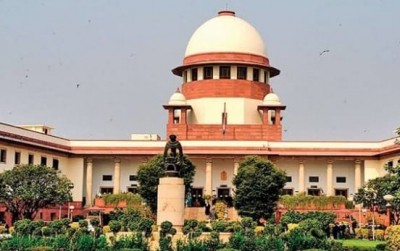
New Delhi, The Supreme Court on Thursday held that deciding the age of superannuation purely lies in the realm of policy-making, as it set aside an Allahabad High Court judgment, quashing the decision to give prospective effect to enhancement in the age of superannuation by the New Okhla Industrial Development Authority (NOIDA).
The high court had directed that retrospective effect should be given to the decision taken by the NOIDA in September 2012, to enhance the retirement age of its employees from 58 to 60. The NOIDA and the UP government had filed an appeal in the top court questioning the correctness of this judgment.
Allowing the appeal, a bench of Justices D.Y. Chandrachud and M.R. Shah said: "The infirmity in the judgment lies in the fact that the high court has trenched upon the realm of policy making and has assumed to itself, jurisdiction over a matter which lies in the domain of the executive."
It added that whether the age of superannuation should be increased and if so, the date from which this should be effected is a matter of policy into which the high court ought not to have entered.
The bench also faulted the high court in ordering that the decision of the state to accept the proposal to enhance the age of superannuation must date back to June 29, 2002.
The high court had ruled that not giving the benefit of increase in the age of superannuation to employees who had retired before September 30, 2012 was arbitrary.
To this, the top court said: "Whether the decision to increase the age of superannuation should date back to the resolution passed by the NOIDA or should be made effective from the date of the approval by the state government was a matter for the state government to decide."
It observed in drawing every cut-off, some employees would stand on one side of the line while the others would be positioned otherwise. "This element of hardship cannot be a ground for the high court to hold that the decision was arbitrary," it added.
It noted that when the state originally decided to increase the age of superannuation of its own employees from 58 to 60 years on November 28, 2001, it had left the public sector corporations to take a decision, based on the financial impact which would result if they were to increase the age of superannuation for their own employees.
The court concluded that since enhancement of the age of superannuation is a 'public function' channelised by the provisions of the statute and the service regulations, the doctrine of promissory estoppel cannot be used to challenge the action of the NOIDA.


.jpeg)

